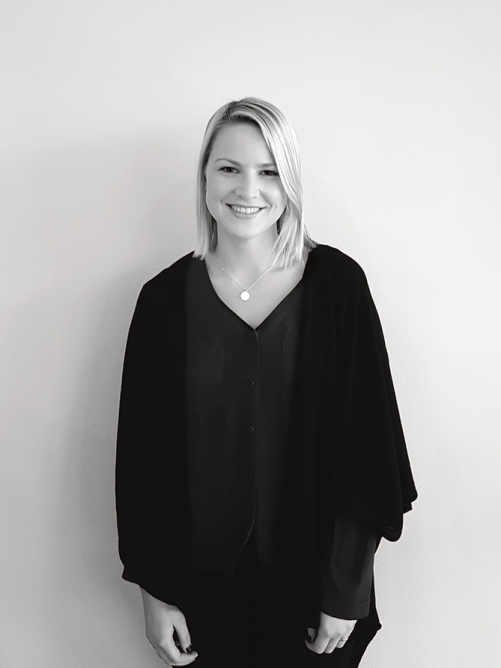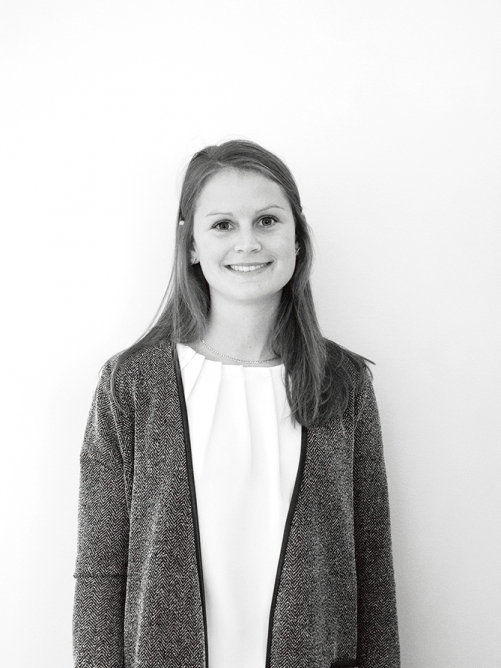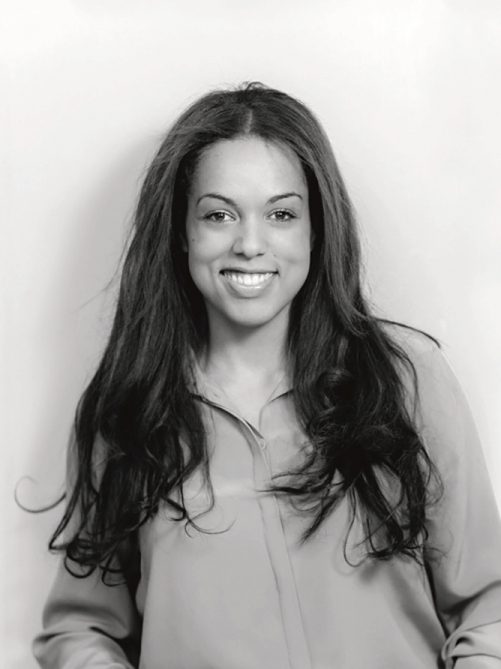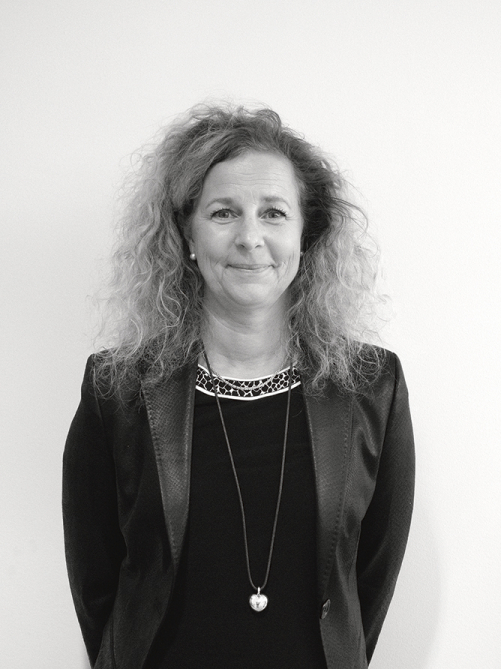Surfing on a Rocket: Managing Permanent Change
Globalisation, urbanisation, digitalisation, but also terrorism, the refugee crisis, and climate change: our modern societies face a kind of existential crisis, where individuals and businesses can either jump on the bandwagon or be left behind in the face of an ever-increasing list of game-changing trends. What if more diversity was the answer to these challenges?
Digitalisation is the first and maybe the most impactful trend affecting businesses in all sectors, regardless of size or structure. A paper by Carl Benedikt Frey and Michael Osborne, of the University of Oxford, argued that jobs are at high risk of being automated in 47 percent of the occupational categories into which work is customarily sorted. As a striking example, the probability that computerisation will lead to job losses within the next two decades was estimated at 0.99 (1 being equal to certain) in the audit and accounting industry(1), which certainly gives us pause for thought. Moving faster than business, technology is today the biggest driver of change and the mother of all battles. This inescapable trend entails a growing need for new competencies, which in turn generates new types of jobs. This technologically driven disruption goes hand-in-hand with the transformation of organisational structures. Whether it is radical new forms, like holarchies(2), or simply flatter management hierarchies, these new forms of business organisation bring to the fore the vital importance of diversity.
In this fast-changing environment, and seeking a range of skills and diversity, companies need to contend with the war for talent. In her work as Client Service Director for Kantar TNS Business Employee Research & Consulting and as chairman of Diversity Charter Sweden(3), Katarina Önell has noticed that it becomes increasingly difficult to find the right skills in the recruitment of new employees for their clients. ‘This is a reality in every modern economy around the world and it is partly due to demographic changes. The greater need for competencies makes it important that more people get a chance to enter the labour market,’ she argues.
Moreover, millennials have changed the rules of the hiring game. For instance, today’s young people ask that companies make a substantial contribution to society. This is clearly shown in the research conducted by the Swedish consulting firm Kairos Future: young people want to work in companies whose values are based on responsible entrepreneurship(4). During paid working time, they want to be able to contribute to, and volunteer in, community foundations or organisations – it is vital that they consider this as being more important than a higher wage.
Therefore, in a world where generations Y and Z are increasingly asking businesses to go beyond traditional corporate social responsibility and engage in creating shared value(5), and where technological disruptions are creating new business needs, it becomes necessary for entrepreneurs to work together with political institutions, researchers and individuals. The goal is to find new solutions and seek stable partnerships to help build a society that is both sustainable and diverse; when policymakers’ take on diversity is not enough, there is an argument to be made about whether companies and other organisations can offer another, more efficient approach.
Diversity in itself is a complex matter – it encompasses differences in terms of, ethnicity, age, sexual orientation, gender identity or expression, disability, religion or other beliefs. To manage diversity issues and create a society that is truly inclusive and counters discrimination is often seen as a utopian dream; nonetheless, a diverse and inclusive workplace is able to better understand clients, which in turn can increase profitability. A well-developed diversity programme can be linked to both business value and goals, opening the door to the genuine creation of shared value. McKinsey’s research clearly demonstrates that companies that address diversity in recruitment are more likely to outperform(6) their competitors.
The report analysed data from 366 large companies in a variety of industries in North America, Latin America and the United Kingdom; in the United States, the results confirm a clear link between diversity and greater economic profitability. For every 10 percent increase in diversity in senior positions, the revenue before interest and tax (known as EBIT) increased by 0.8 percent. Gender-diverse companies are 15 percent more likely to outperform; ethnically diverse companies do even better, being 35 percent more likely to outperform competitors.
|
Victoria Wessman Auditor at Mazars in Sweden |
Maria Hansen Auditor at Mazars in Sweden |
Diversity in Sweden: a case study
Sweden is one of the most dynamic economies in the Eurozone, with a growth rate of around 3.5 percent in 2016, after an even higher 4.2 percent in 2015, and its unemployment rate has fallen below 7 percent. Generally perceived as a successful, neutral, and stable country, Sweden is facing the same challenges as other developed countries. The refugee crisis is a striking example of this, with 163,000 people seeking asylum in Sweden in 2015. SCB, the nation’s statistics agency, forecasts Sweden’s population will have passed 10 million in 2017, and 12 million by 2040(7).
Approximately 70 percent of this population growth is occurring in the three largest cities, Stockholm, Gothenburg and Malmö. Integrating newcomers into Swedish society through education, jobs, and housing is a major challenge for policymakers, the Swedish business community, and individuals alike.
However, prejudices and discriminatory attitudes are major hurdles for immigrants and newcomers to entering the labour market. ‘A lot of research and studies confirm the positive effects of diversity on businesses, especially the link with increased profitability. However, there is still too little research in this area. Just looking at turnover and profit is not enough. One of the most important criteria to consider is inclusive leadership’, says Katarina Önell. In her role as chairman of Diversity Charter Sweden, she works to inspire and provide tools to businesses that feature diversity in their agendas.
The NGO also highlights the significance of diversity for the competitiveness of Swedish companies. ‘It is therefore very positive that more and more clients integrate diversity and inclusion into their strategy and that they live up to their values’ continues Önell. She hopes that the European Union directive that requires large and medium-sized enterprises to report their actions on diversity will help accelerate the movement.
‘Without inclusion, diversity means nothing!’ states Azita Shariati, who, in 2015, was distinguished as the most powerful Swedish businesswoman(8). As the CEO of Sodexo in Sweden since 2015, her leadership is anchored in the company values and features an inclusive approach to business development. For the Teheran-born woman who came to Sweden at the age of 20, diversity involves accepting that we, as humans, are different.
When Sodexo embarked on its global change process in 2010, the objective was actually to increase customer satisfaction, create growth and achieve better profitability. ‘We started to look at the leadership because it is the management that should drive the change process. It was found that 70 percent of the managers in Sodexo were men. The target we set in our own management group was that, within five years, we should have 50 percent of women in senior positions’, explains Shariati. Today, half of the senior management team are women, and at other management levels, the part of women reaches 40 percent. All managers have also been trained in diversity and inclusion to understand how their prejudices influence decisions and treatment.
From a broader perspective, Shariati believes it is a worthy challenge to be involved in, contributing to making it easier to employ newcomers in the country. ‘The most important thing is to get a job. It is more important than housing and knowing the language. If you have a job, you learn the language, and if you have a job, you can also get housing. To achieve concrete change, we need better synergy between policymakers, the business community, and trade unions; only together can we find solutions that give newcomers a better introduction to society’ exhorts Shariati.
|
Elaine Eksvard Consultant, writer and speaker |
Asa Anderson Eneberg Audit Partner at Mazars in Sweden |
As a young, talented and successful consultant, writer and speaker Elaine Eksvärd has never related to herself as a child of immigrants. ‘To create diversity, a completely new norm is needed’ she says. ‘We need entrepreneurs to act as policymakers and find new, working solutions that lead to a better understanding and improved communication between people’. This high expectation applies to all industries, including audit, accountancy and consulting. Mazars in Sweden has come a long way in its work on diversity and has, for the sixth year in a row, been ranked as the most gender-equal audit firm in Sweden(9). Among the seven largest audit firms, it is the second firm with a female CEO and a high proportion of female managers and partners.
‘As a modern firm, we must follow evolutions and be at the forefront when it comes to mega-trends such as digitalisation and skills training. I still wish that more women would choose to become partners at Mazars. We have to find the key to how we can get talented women to take the step and become partners’, says Åsa Andersson Eneberg, an audit partner at Mazars in Sweden.
A change in perspective
Maria Hansen and Viktoria Wessman, two young female auditors working at Mazars in Sweden, have their approach to the topic, that comes from being part of a larger community. They belong to a generation where gender equality is natural and diversity is a given.
Even for them, the upcoming challenge is to accelerate on diversity issues and achieve a more diverse workplace. ‘We want to contribute to creating an open and tolerant firm that accepts and values differences’ says Hansen and Wessman. As a firm, we benefit from hiring both men and women with different backgrounds and cultures, but who also have the required skills that we need’.
As the CEO of Mazars in Sweden since 2011, Marianne Sandén Ljungberg has made change management the focus of her leadership. Being the leader of one of Sweden’s most gender-equal audit firms, one that uses modern technology, actively works on sustainability issues and which develops its products and services could be, of course, a source of pride. ‘We have a tolerant corporate culture that makes it possible to combine family and career. But for me, diversity is much more than men and women of different ages with different backgrounds and sexual orientations. We are all different, and it involves capitalising on each other’s differences – that is what creates diversity’.
Pia Lillebaek, managing partner of Mazars in Denmark, concurs: ‘There is a strong tendency to put people in ‘boxes.’ I tend to be annoyed when only women are asked about gender issues, or only older people are talking about ‘managing’ GenY recruits. We need to think of ourselves more like a melting pot.’ The challenge may well be about combining this approach with more traditional recruitment goals: ‘In the end, we always recruit people based on skills and by seeking the potential for development in each person,’ says Sandén Ljungberg.
As the role of the auditor is gradually changing to become more consultative, she sees great potential in giving customers advice on both sustainability and diversity issues. ‘Many companies have not yet come far on these issues. As trusted advisers, we can offer relevant role models’. As we look to the exemplary approach of these Nordic case studies, we learn that we can never rest on our achievements. As technology and business continue to change, we can only create shared value for businesses and society if our diversity strategies adapt and grow to keep pace.
(1) ‘The future of Employement: How Susceptible are Jobs to Computerisation?’ by C. Frey and M. Osborne (2013).
(2) https://blog.holacracy.org/holacracy-vs-hierarchy-vs-flat-orgs-d1545d5dffa7#.87yh84fe3
(3) http://www.diversitycharter.se/
(4) http://www.kairosfuture.com/research/
(5) ‘Creating Shared Value’. Mazars Group Yearbook 2015. http://annualreport.mazars.com
(6) ‘Why Diversity Matters’. http://www.mckinsey.com/business-functions/organization/our-insights/whydiversity-matters
(7) http://www.scb.se/en_/About-us/News-and-press-releases/Container-for-news-and-press-releases/Statistics-Swedens-population-clock-is-ticking-away-toward-ten-million/
(8) ‘Sveriges mäktigaste affärskvinna vänder upp och ner på strukturerna’. Veckans Affärer, March 3rd 2015. http://www.va.se/nyheter/2015/03/06/naringslivets-maktigaste-kvinna-azita-shariati
(9) ‘Vi får inte slå oss till ro’. Balans, March 16th 2016. http://www.tidningenbalans.se/nyheter/vi-far-inte-slaoss-till-ro/




